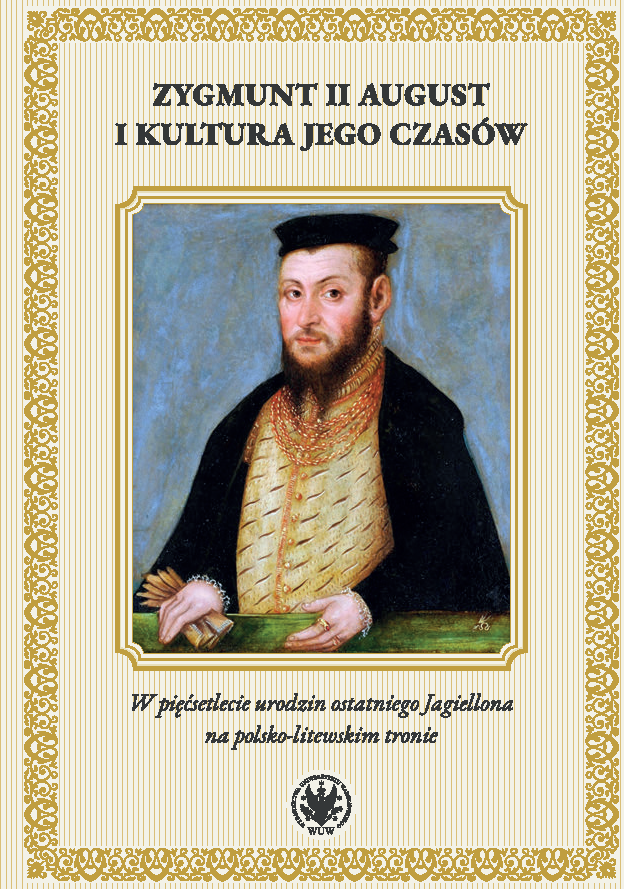„Ku pospolitej potrzebie” – testament Zygmunta Augusta i pierwsza polska publiczna kolekcja sztuki
“For the Common Good” – Last Will and Testament of Sigismund Augustus and the First Public Art Collection in Poland
Author(s): Aleksandra Jakóbczyk-Gola
Subject(s): Cultural history, 16th Century, 17th Century, 18th Century, History of Art
Published by: Wydawnictwa Uniwersytetu Warszawskiego
Keywords: Sigismund II Augustus; tapestry; Polish-Lithuanian Commonwealth; testament; collection; history of museums
Summary/Abstract: In his testament, Sigismund II Augustus handed over his accumulated collection of tapestries to the Polish-Lithuanian Commonwealth, which he perceived as one political body composed of two nations. This article interprets this decision as a kind of a guarantee of the system’s immutability. It sees the attitude of the last Jagiellon as going beyond the framework of his era, unprecedented in the country and even among the rulers of Europe. It can only be compared with the choices of European collectors in that period, for example Ulysses Aldrovandi or Ferdinando Cospi. It is a testimony to the process of gradual handing over art collections to the public and the establishment of the first museums. As the article proves, Sigismund II Augustus as a collector was aware of the material and symbolic value of the works he collected. His actions can be compared with the behaviour of Anna Maria Luisa, the last of the Medici, who also donated the collections of her family to Florence for the benefit of the public. The decisions of both rulers were also influenced by changes in cultural formation. They show the experience of the end of the epoch: the trends of the decline of the Renaissance – mannerism.
Book: Zygmunt II August i kultura jego czasów
- Page Range: 393-411
- Page Count: 19
- Publication Year: 2022
- Language: Polish
- Content File-PDF

